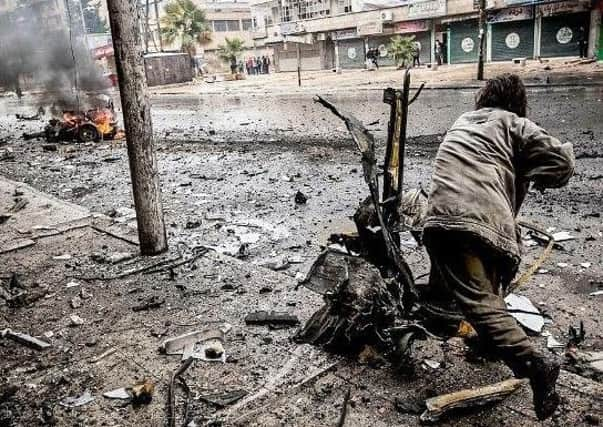Paul Rogers: Why we need to find a new plan to defeat terror on our doorstep


In a terrible way, though, it fits a pattern of attacks since the so called Islamic State (IS) came under pressure from the US-led coalition after the start of the intense air war in August 2014.
Before then, IS was all about developing its “Caliphate” or state, which reached its peak in June 2014 with the control of substantial parts of northern Iraq and Syria and covering a population of at least six million people.
Advertisement
Hide AdAdvertisement
Hide AdUnlike the many al-Qaida attacks of the early 2000s, including the London 7/7 bombings in 2005 and the even more devastating Madrid bombings the previous year, IS had not previously thought it necessary to attack the “far enemy” of western states.


However, once the air war started that all changed, with key participants in the coalition such as France and Britain being singled out as particular targets for attack.
France bore the burden of the actions, not least with Nice last summer and Paris the previous autumn, but Germany, Belgium and Turkey have also been attacked, as well as London being hit two months ago in the Westminster Bridge incident.
Much more will become clear in the next few days but if we assume that IS was either directly involved or at the very least somehow incited or encouraged this attack then we have to recognise that it had specific aims.
Advertisement
Hide AdAdvertisement
Hide AdThe first was that it intended to damage community relations as much as it could. It actually wants to encourage anti-Muslim bigotry and this makes it so important not to fall into that trap.


The way people in and around Manchester on Monday night rallied in so many different ways to help those affected is a sure sign that IS is falling short in this dangerous aim.
IS also seeks revenge for the tens of thousands of its own supporters who have been killed in the air war and, finally, it is determined to show that it is still a powerful force with an international reach.
The Pentagon stated as long ago as last December that the air war against IS had already killed at least 50,000 of its supporters and the true figure may now exceed 60,000.
Advertisement
Hide AdAdvertisement
Hide AdAirWars, the independent monitoring group which tracks the progress of the war, reported on Monday that “between 283 and 366 civilians likely died in Coalition actions across Iraq and Syria according to our provisional assessment, making April the second worst month for civilian fatalities since Coalition actions began in August 2014.”
IS is only too well aware of the losses it is taking but it puts a great deal of effort into communicating news of the civilian losses through its extensive social media outlets, using this process to try and encourage new recruits.
While IS is now under considerable pressure in Iraq and Syria, the movement has shown a worrying resilience, seen currently in the eight months it is taking for the Iraqi Army to get back control of the country’s second city of Mosul when it was expected to take barely a third of that time.
Furthermore, although not directly related to the atrocities in Manchester last night, what may be worrying western leaders as much as anything is the way in which IS is now adapting to the coalition’s intensive air attacks.
Advertisement
Hide AdAdvertisement
Hide AdWithin Iraq it is already making the transition from a quasi-state to an underground guerrilla force intent on undermining the Abadi government in Baghdad.
An ominous sign of what may be to come is that earlier this week, and just as it was under extreme pressure in western Mosul, a separate IS unit attacked an Iraqi military training centre at Diyala, just 50 miles north-east of Baghdad, killing four soldiers, injuring four more and destroying five army vehicles.
For more than 15 years we have been engaged in wars against IS and its al-Qaida predecessor. In that time, three countries have been wrecked. In Iraq, Libya and Afghanistan, many hundreds of thousands of people have been killed or seriously injured, at least eight million people have fled their homes and thousands of billions of dollars have been spent in fighting wars that seem to have no end.
How we undermine IS and like-minded groups may not be clear but it is obvious that what we have been doing has not worked, the Manchester Arena bombing being yet one more indicator of that.
Advertisement
Hide AdAdvertisement
Hide AdPerhaps after the election there will be time for some serious rethinking, whichever party wins. If not, then we may face at least another 15 years of war.
Paul Rogers is Professor of Peace Studies at Bradford University and author of Irregular War: ISIS and the New Threats from the Margins.